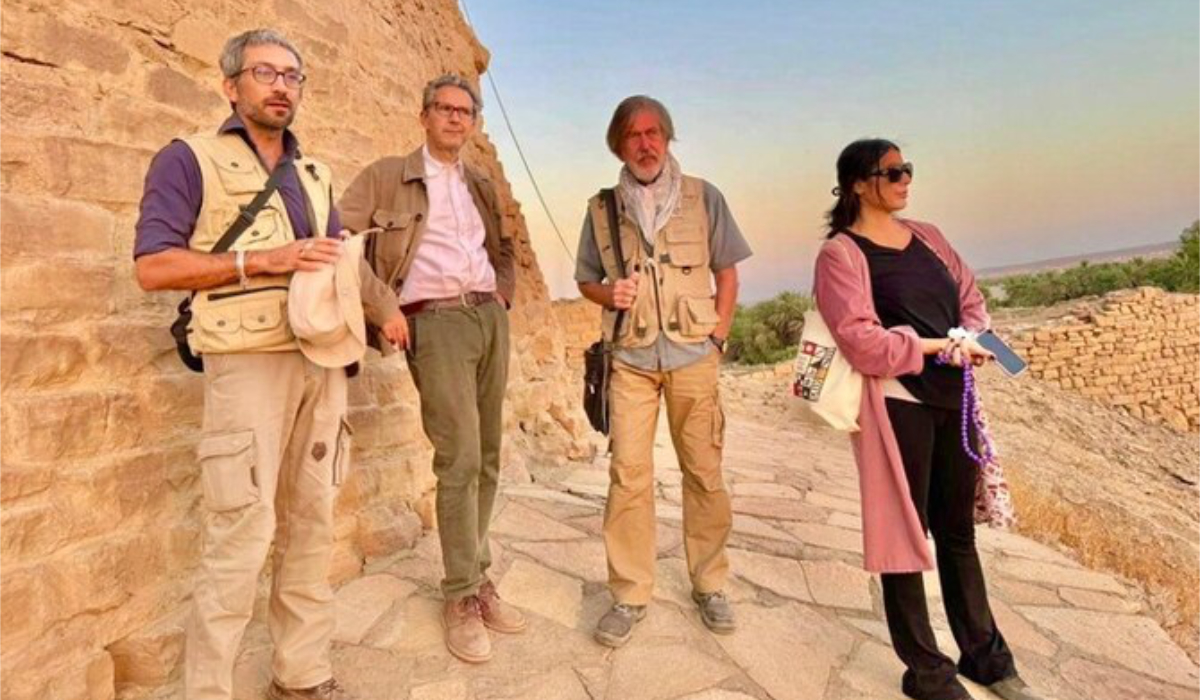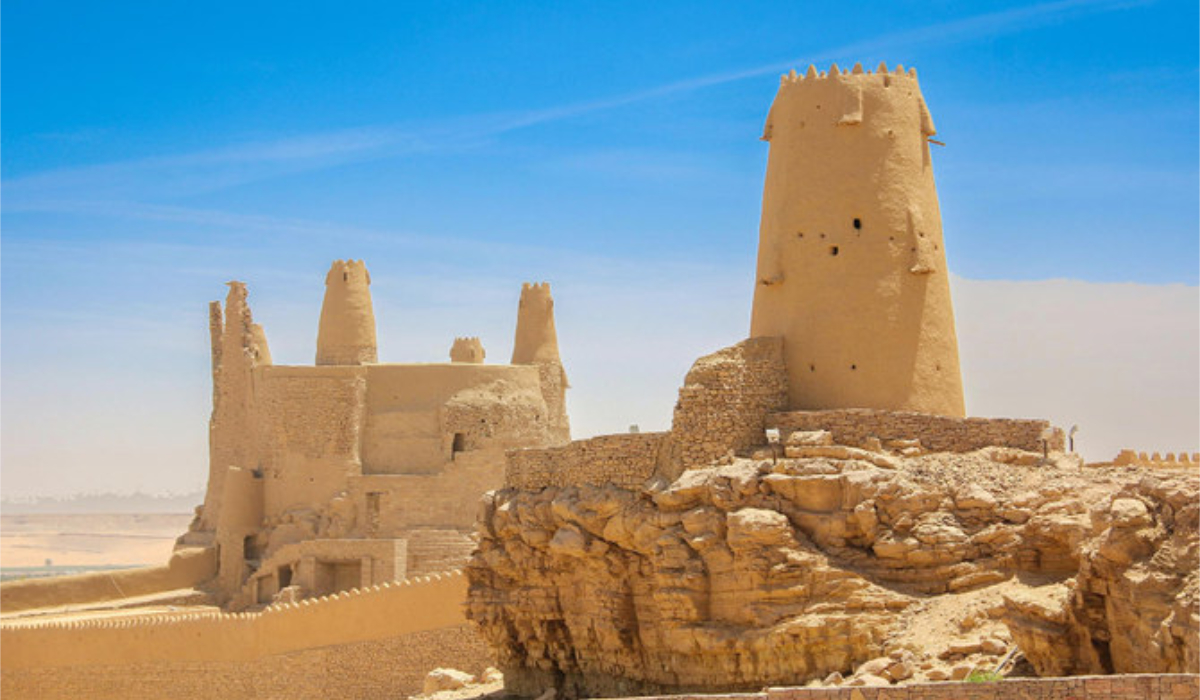RIYADH: The award-winning Saudi film “Norah” made its premiere in the Kingdom on Thursday after its international success at the Cannes Film Festival.
A special screening was held on Wednesday night at Roshn Front’s Vox Cinema, where director Tawfik Al-Zaidi was in attendance alongside the film’s star, Maria Bahrawi, and her acclaimed co-stars Yaqoub Al-Farhan and Abdullah Al-Sadhan.
Al-Farhan told Arab News: “To be accepted in Cannes is an indication of how important this film is, and also an indication of how much progress the film industry (has made) here.
“Although it’s still the beginning of it, we’re starting to see the results of the huge work that’s happening right now.
“I’m very positive about the future. If this is the beginning, I think after five or 10 years, we’ll be seeing a lot of great films from Saudi.”
“Norah” achieved great success at the 78th annual Cannes International Film Festival, where it was the official selection for the “Un Certain Regard” competition, one of the most critical titles of the event. It also received the Special Mention from the jury, making it the most notably recognized Saudi film at Cannes.
The film takes place in a remote Saudi village in the 90s, where Norah (played by Bahrawi) dreams of seeing horizons beyond her small village. As a new teacher, Nader (played by Al-Farhan) makes his way to her hometown, and Norah’s world begins to open up through art, knowledge and creativity, leading her to discover more about her own family history.
“The fact that they chose me for the role only two weeks before production was a surprise for me. But, thankfully, my first role in a film was a success and reached international audiences. I’m very proud and happy that today it’ll be in cinemas and the world can see it, and I’m excited to see people’s reactions,” Bahrawi told Arab News.
While it was first screened last December at the Red Sea International Film Festival, where it won the “Best Saudi Film” award, the nationwide cinema premiere is a culmination of the film’s journey to its intended audience: the Saudi public.
Bahrawi said: “The fact that they chose me for the role only two weeks before production was a surprise for me. But, thankfully, my first role in a film was a success and reached international audiences. I’m very proud and happy that today it’ll be in cinemas and the world can see it, and I’m excited to see people’s reactions.
“Since I was young, I’ve always dreamed of being an actress, and today I can say that I’ve reached that and acted in my first film as a lead role… AlUla was the city that made my first dream come true.”
Taking public participation even further, a competition was presented to the public last Thursday inviting all girls named Norah to play a part. About 500 girls took part, and two winners received tickets to the special pre-screening event.
“Norah” is the first Saudi feature to be filmed entirely in AlUla. “The city itself and its locations really complemented the film’s story, so that was a wonderful choice for the location,” Bahrawi said.
While the film is both Bahrawi’s debut on the big screen and Al-Zaidi’s first feature film, it was also a personal experience for Al-Farhan, who is widely known for his role in the TV mini series “Rashash.”
“There’s so many similarities between me and the character, which is why it’s a very personal project for me and it’s so dear to my heart, especially after the achievement of the Cannes Film Festival,” he said.
In preparation for the role, Al-Farhan spent time with a professional sketch artist in order to learn the craft for his role — even simple things like holding a pencil the right way.
He said that the beginning sketches featured in the film were his own work, but the final results were “by a real artist.”
Production was supported by the Film Commission through Daw, a national initiative to support and encourage Saudi filmmakers. The film also received support from Film AlUla, the Red Sea Film Fund and Generation 2030.
The inspiration for “Norah” came to Al-Zaidi in 2015 from his need to express something within him. In the same way that Al-Farhan’s character, Nader, portrays his feelings on sketchbooks and canvases, Al-Zaidi uses the big screen.
He told Arab News: “I’m a lover of art in all its forms, whether its music, drawing or visiting museums, cinema encapsulates all of these arts and shows them beautifully through a film’s crew.
“I wanted to create these emotions between two people who love art, Norah and Nader. Art is a means of communication between people, and a means of expression as well.”
As the Saudi film scene continues to develop and grow toward global horizons, Al-Zaidi is confident that the industry can overcome challenges.
“Challenges will always be there, but as they say, ‘success has many fathers, but failure is an orphan’ ... if you believe in yourself, you will get there,” he said.



































